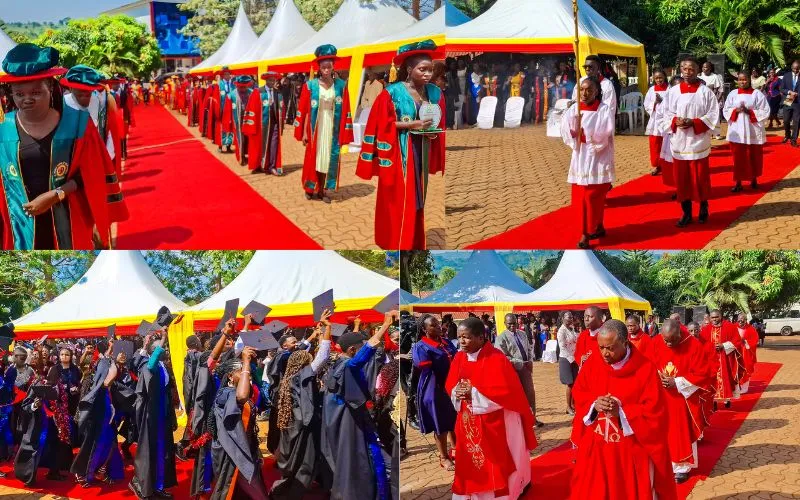The protests grew into daily pro-democracy marches in June, with protesters voicing deep-seated political and economic grievances. At least 50 people were reported dead.
According to the members of the Council of churches in Eswatini, it has taken many years, even after independence, for the people of South Africa to have a trusting relationship with the police and the army.
They say, in reference to South Africa’s Apartheid regime, “We believe that this is not what we want and it is definitely not what the men and women in our security forces are called for. They are to serve with honor and protect all the citizens of this country without fear or favor.”
The leaders also call on the people of Eswatini to uphold dignity even amid protests and to avoid the use of abusive language while expressing their grievances.
“Whilst appreciating the right to peaceful protest, we condemn the use of abusive and vulgar language by some protestors. Protests must be done peacefully and with respect for the next person's dignity,” they say.
(Story continues below)
The religious leaders highlight the education crisis in Eswatini and assert that challenges bedeviling the country’s education sector have been exacerbated by insecurity and unrest.
“The Council of Swaziland Churches believes in the importance of education and in the right to education for all children,” the faith-based leaders say.
They add, “We therefore condemn any disturbance of education and the destruction of schools and property during protests. While we believe in empowering children on their rights and on social justice, we condemn any irresponsible behavior from both adults and children.”
The church leaders call upon the government to follow the law when dealing with children, including following the United Nation Convention on the Rights of the Child when effecting arrests and prosecuting children.
They express their appreciation to the government for opening schools in stages and using the blended learning approach saying, “This allowed schools to easily follow COVID-19 protocols and assisted in the prevention of the spread of the virus.”
They say that some school closures, however, have been due to the protests that have been happening in the country, with demonstrators sometimes breaking into schools.
Apart from COVID-19, schools have also battled inefficiencies such as shortage of teachers, nonpayment of the orphaned and vulnerable children (OVC) and free primary education (FPE) funds and the political situation in Eswatini.
The faith-based leaders note that in certain instances, schools in Eswatini have been forced to close indefinitely regardless of the deployment of security forces to learning institutions.
They however observe that the deployment of security forces in schools amid unrest made the situation more tense as the same forces were seen beating up children.
“While condemning the destruction of school property by pupils we also do not believe that the presence of armed security forces contributes to a conducive learning environment,” they say in their statement.
The church leaders condemn statements attributed to some of the country’s lawmakers to the effect that the government will withhold payment of fees to schools that are closed or for students involved in protest saying these pronouncements are misplaced.
“The Council would like to remind the government that they are custodians of public funds which cannot be used to include or exclude based on one's loyalty to the state. All emaSwati should be treated equally as we are all equal in the eyes of God,” they say.
Meanwhile, the Council of Swaziland Churches has welcomed the decision by the government to once more close schools in the country amid unrest, and expressed concern about an indefinite closure.
They maintain that the reasons for the protests in schools are not only school related, adding, “if we do not address the main issues urgently, it may mean that schools will remain closed for a very long time.”
“Unfortunately, the Honorable Prime Minister did not say what will be done to ensure safe opening of schools again,” the members of the Council of church in Eswatini say.
They add, “We can no longer bury our heads in the sand and pretend as if we do not see what is happening or as if we do not know the cause of our crisis. We believe that it is time for emaSwati to engage on the governance issues through meaningful dialogue.”
Agnes Aineah is a Kenyan journalist with a background in digital and newspaper reporting. She holds a Master of Arts in Digital Journalism from the Aga Khan University, Graduate School of Media and Communications and a Bachelor's Degree in Linguistics, Media and Communications from Kenya's Moi University. Agnes currently serves as a journalist for ACI Africa.








